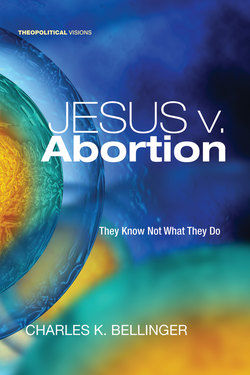Описание книги
There are three main positions that people adopt within the abortion debate: pro-life, muddled middle, and pro-choice. Jesus v. Abortion critiques the pro-choice and muddled middle positions, employing several unusual angles:
(1) The question «What would Jesus say about abortion if he were here today?» is given very substantial treatment.
(2) The abortion debate is usually conducted using moral and metaphysical arguments; this book adds in anthropological insights regarding the function of violence in human culture.
(3) Rights language is employed by both sides of the debate, to opposite ends; this book leads the reader to ask deep questions about the concept of «rights.»
(4) The use of historical analogies in the abortion debate goes both directions, in the sense that both sides accuse the other of being similar to the defenders of slavery; this book contains what is probably the most sophisticated and sustained analysis of the meaning and legitimacy of such analogies.
(5) Many important thinkers are brought into this conversation, such as Soren Kierkegaard, Eric Voegelin, Julien Benda, Simone Weil, Kenneth Burke, Richard Weaver, Rene Girard, Philip Rieff, Giorgio Agamben, Chantal Delsol, Paul Kahn, and David Bentley Hart.
(1) The question «What would Jesus say about abortion if he were here today?» is given very substantial treatment.
(2) The abortion debate is usually conducted using moral and metaphysical arguments; this book adds in anthropological insights regarding the function of violence in human culture.
(3) Rights language is employed by both sides of the debate, to opposite ends; this book leads the reader to ask deep questions about the concept of «rights.»
(4) The use of historical analogies in the abortion debate goes both directions, in the sense that both sides accuse the other of being similar to the defenders of slavery; this book contains what is probably the most sophisticated and sustained analysis of the meaning and legitimacy of such analogies.
(5) Many important thinkers are brought into this conversation, such as Soren Kierkegaard, Eric Voegelin, Julien Benda, Simone Weil, Kenneth Burke, Richard Weaver, Rene Girard, Philip Rieff, Giorgio Agamben, Chantal Delsol, Paul Kahn, and David Bentley Hart.
